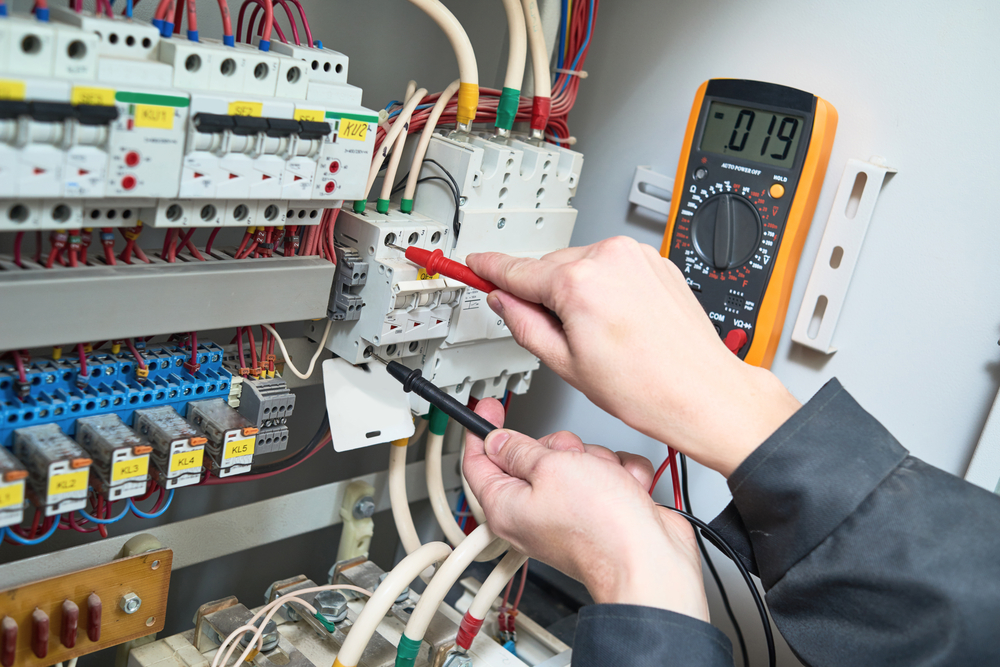Heading into 2021, electricians are in high demand in Canada. Not only does the Bureau of Labor Statistics predict the need for electricians to increase by 20% heading into 2022, but a large number of older electrical contractors have retired over the last few years. Even with a surge of new electricians, the numbers are still decreasing. No matter where you live, electricians are in high demand, giving you some of the best job security available.
One of the best perks of being an electrician is you do not have to attend college. There are some benefits to going to college as an electrician, but to get started, all you need is to finish the 10th grade and complete an apprenticeship. Joining an electrician union does require you graduate from high school. Getting a degree is often only required for specialized fields. On average, electricians earn about $70,000, with more experienced or specialized electricians making closer to $114,000. Another benefit is you can choose whether you work alone, or with a company. More information about becoming an electrician, including some of the best training programs in 2021, are noted below.

Types of Electrician Jobs
Electricians work in a number of industries across Canada. Some set up electricity in new homes or apartment buildings, while others work in office buildings. Electricians fall under two categories. The first is linemen, which refers to any electrician who works outside. The other type is wiremen, who work on power systems inside of buildings.
Electricians begin as apprentices. During an apprenticeship, electricians attend classes to get certified. After certification, apprentices work with a licensed electrician. How long you remain an apprentice depends on your province. In most cases, it is about 1.5 years to 2 years depending on how long it takes to complete the required overall hours. When your apprenticeship ends, you must pass a test before officially becoming a licensed electrician.
The final level is master electrician. This requires working as a licensed electrician for a set number of hours, which varies depending on the province. In the majority of provinces you must work for a minimum of 4,000 hours. After this period, you must take a final licensing exam. Apprentice, journeyman and master electricians all earn different salaries. The more advanced your position, the more you earn. Getting additional certification or taking other classes may also increase your wages. Some examples of specialized electrician careers include industrial, commercial, maintenance or auto electricians.
University of British Columbia
University of British Columbia has one of the most robust electrician programs. Listed globally as the #18 school for electrical and electronic engineering according to U.S. News, the opportunities after school are significant. There are various different classes available. The programs primarily focus on hands-on experience, with lectures and book assignments. Learn and hone your skills for servicing electronics, circuit board analysis and electromagnetics. The courses will test your knowledge and set you up for a successful electrician career.
University of Alberta
University of Alberta is an excellent college if you want to choose an electrician specialty. Multiple courses are available, including a program for electrical technology, commercial wiring and powerline technology. While working on your degree, you’ll have great opportunities to gain hands-on experience inside and outside the classroom, participate in research, and collaborate on team projects over the course of the semester. Also known for their work placement after graduation, the opportunities for future electrical engineers are vast.
Kennebec Valley
Kennebec Valley may not have as many electrician courses available as other colleges, but it has excellent degree programs for electrical technology and is located in close to Canada’s border in Fairfield, Maine. One notable program is the electrical line worker course. Completing this program takes a year, but it gives you all the necessary training and certification to work with powerlines, telephone and cable systems. There is also an advanced course option, which takes two years to complete. At the end of this program, you receive your Associate of Applied Science degree. While most of the classes take place during the day, there are several certification programs taught during the evening.